Satellite TV manufacturing businesses tend to have what economists call "economies of scale." When economies of scale exist, bigness can be its own reward.
The more TV's you manufacture in a single run, lower the costs per unit, which in turn increases your bottom-line margins.
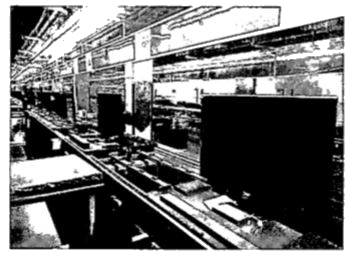
Keeping that in mind, a T.V. manufacturing company increases its production uniformly by fixed number every year. The company produces 8000 sets in the 6th year and 11,300 sets in the 9th year.
In which year the company's production is 9100 sets ?
5th
6th
7th
9th
Step by step video solution for Satellite TV manufacturing businesses tend to have what economists call "economies of scale." When economies of scale exist, bigness can be its own reward. The more TV's you manufacture in a single run, lower the costs per unit, which in turn increases your bottom-line margins. Keeping that in mind, a T.V. manufacturing company increases its production uniformly by fixed number every year. The company produces 8000 sets in the 6th year and 11,300 sets in the 9th year. In which year the company's production is 9100 sets ? by Maths experts to help you in doubts & scoring excellent marks in Class 10 exams.
Topper's Solved these Questions
Similar Questions
Knowledge Check
- Question 1 - Select One
Satellite TV manufacturing businesses tend to have what economists call "economies of scale." When economies of scale exist, bigness can be its own reward. The more TV's you manufacture in a single run, lower the costs per unit, which in turn increases your bottom-line margins.
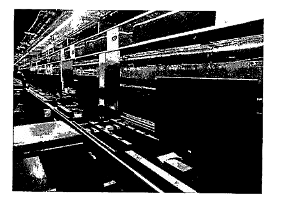
Keeping that in mind, a T.V. manufacturing company increases its production uniformly by fixed number every year. The company produces 8000, sets in the 6th year and 11,300 sets in the 9th year.
The company's production increases every year by:A2500B2200C1800D1100 - Question 2 - Select One
Satellite TV manufacturing businesses tend to have what economists call "economies of scale." When economies of scale exist, bigness can be its own reward.
The more TV's you manufacture in a single run, lower the costs per unit, which in turn increases your bottom-line margins.
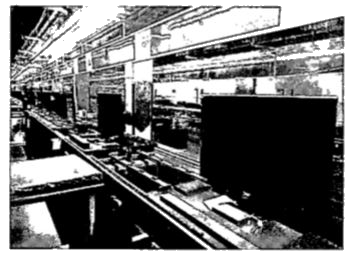
Keeping that in mind, a T.V. manufacturing company increases its production uniformly by fixed number every year. The company produces 8000 sets in the 6th year and 11,300 sets in the 9th year.
The company's production increases every year by:A2500B2200C1800D1100 - Question 3 - Select One
Satellite TV manufacturing businesses tend to have what economists call "economies of scale." When economies of scale exist, bigness can be its own reward. The more TV's you manufacture in a single run, lower the costs per unit, which in turn increases your bottom-line margins.
Keeping that in mind, a T.V. manufacturing company increases its production uniformly by fixed number every year. The company produces 8000, sets in the 6th year and 11,300 sets in the 9th year.
The company's production of the first year is:A2000B2500C3000D5000
Satellite TV manufacturing businesses tend to have what economists call "economies of scale." When economies of scale exist, bigness can be its own reward. The more TV's you manufacture in a single run, lower the costs per unit, which in turn increases your bottom-line margins.
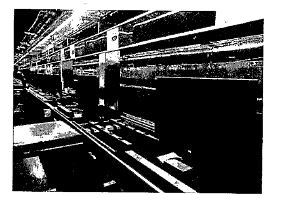
Keeping that in mind, a T.V. manufacturing company increases its production uniformly by fixed number every year. The company produces 8000, sets in the 6th year and 11,300 sets in the 9th year.
The company's production of the 8th year is:View SolutionSatellite TV manufacturing businesses tend to have what economists call "economies of scale." When economies of scale exist, bigness can be its own reward.
The more TV's you manufacture in a single run, lower the costs per unit, which in turn increases your bottom-line margins.
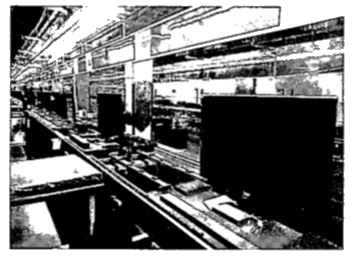
Keeping that in mind, a T.V. manufacturing company increases its production uniformly by fixed number every year. The company produces 8000 sets in the 6th year and 11,300 sets in the 9th year.
The company's production of the 8th year is:View SolutionSatellite TV manufacturing businesses tend to have what economists call "economies of scale." When economies of scale exist, bigness can be its own reward.
The more TV's you manufacture in a single run, lower the costs per unit, which in turn increases your bottom-line margins.
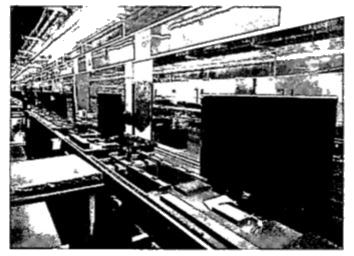
Keeping that in mind, a T.V. manufacturing company increases its production uniformly by fixed number every year. The company produces 8000 sets in the 6th year and 11,300 sets in the 9th year.
The company's total production of the first 6 years is:View SolutionSatellite TV manufacturing businesses tend to have what economists call "economies of scale." When economies of scale exist, bigness can be its own reward. The more TV's you manufacture in a single run, lower the costs per unit, which in turn increases your bottom-line margins.
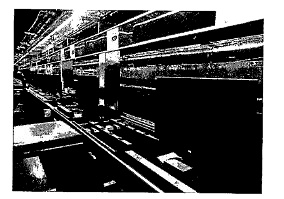
Keeping that in mind, a T.V. manufacturing company increases its production uniformly by fixed number every year. The company produces 8000, sets in the 6th year and 11,300 sets in the 9th year.
The company's total production of the first 6 years is:View SolutionSatellite TV manufacturing businesses tend to have what economists call "economies of scale." When economies of scale exist, bigness can be its own reward.
The more TV's you manufacture in a single run, lower the costs per unit, which in turn increases your bottom-line margins.
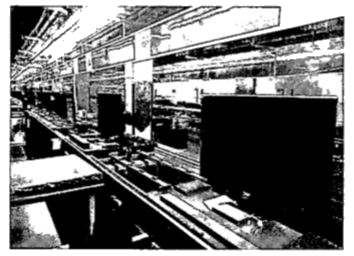 Keeping that in mind, a T.V. manufacturing company increases its production uniformly by fixed number every year. The company produces 8000 sets in the 6th year and 11,300 sets in the 9th year.
Keeping that in mind, a T.V. manufacturing company increases its production uniformly by fixed number every year. The company produces 8000 sets in the 6th year and 11,300 sets in the 9th year.
On the basis of the above information, answer any four of the following questions:
The company's production of the first year is:View Solution

